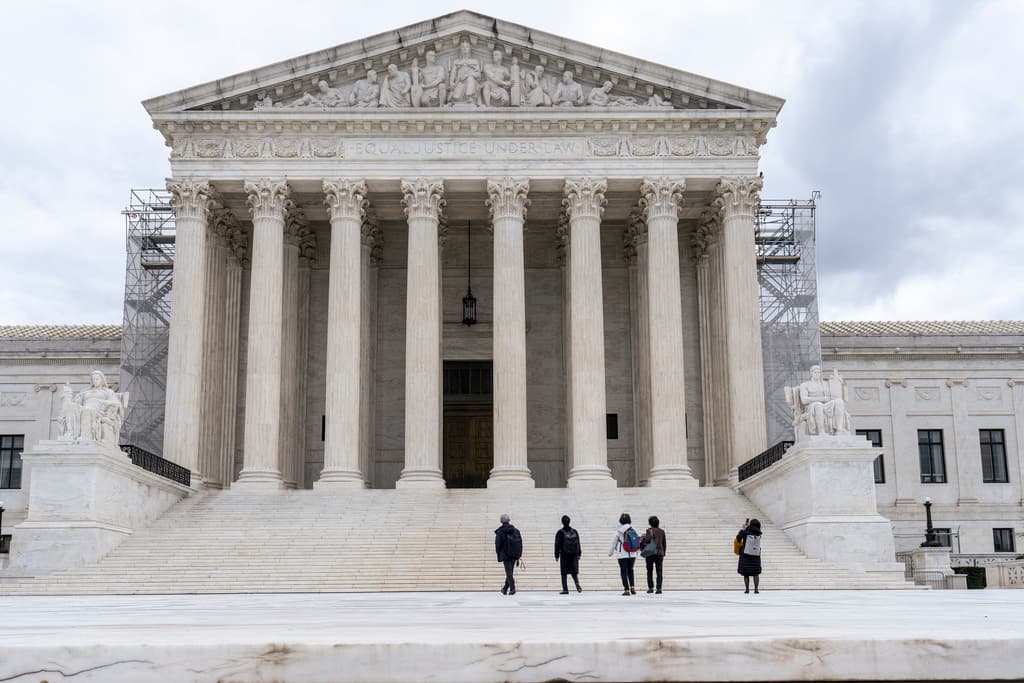Supreme Court Will Weigh State Laws Restricting Gender Transitions for Minors After Biden Administration Appeal
The case, which will be considered by the justices in the next term, is expected to affect more than 20 states.

The Supreme Court is jumping into the national debate over state bans on gender transitions for minors, in a case that is expected to have ripple effects on more than 20 states that have passed bans on the procedures.
The justices announced on Monday that they will consider an appeal from the Biden administration in the next term as it seeks to undo Tennessee’s Senate Bill 1, which blocks doctors from performing gender transitioning procedures that enable minors to “identify with, or live as, a purported identity inconsistent with the minor’s sex.”
The Biden administration urged the court to weigh in on the topic, saying that Tennessee’s ban violates the 14th Amendment’s equal protection clause and arguing that intervention was critical after the Sixth Circuit Court of Appeals allowed the law to stay in effect.
The justices have previously been largely silent on transgender issues. The court as recently as January declined to weigh in on a transgender bathroom dispute. At the time, a federal appeals judge foreshadowed that the Supreme Court would soon likely have to weigh in on transgender issues given the national debate over them.
“Litigation over transgender rights is occurring all over the country, and we assume that at some point the Supreme Court will step in with more guidance than it has furnished so far,” Judge Diane Wood wrote.
In its appeal before the Supreme Court, the Biden administration wrote that “this Court’s intervention is urgently needed because Tennessee’s law is part of a wave of similar bans preventing transgender adolescents from obtaining medical care that they, their parents, and their doctors have all concluded is necessary.”
The Biden administration said the high court’s review was necessary to determine “whether the recent wave of bans on gender-affirming care are consistent with the Equal Protection Clause,” noting that it is “a question of national importance that urgently requires a definitive resolution.”
In its reply before the court, Tennessee noted that “states are facing an unexplained surge of minors receiving gender-dysphoria diagnoses,” with the percentage of transgender youth doubling in recent years while the percentage for adults “has remained constant.” The state notes the “severe risks” associated with the “unproven and risky sex-transition interventions.”
“Tennessee, like many other States, acted to ensure that minors do not receive these treatments until they can fully understand the lifelong consequences or until the science is developed to the point that Tennessee might take a different view of their efficacy,” the filing notes. “The Equal Protection Clause also has little to say because Tennessee’s law ‘treat[s] similarly situated individuals evenhandedly,’ no matter how ‘one characterizes the alleged classifications in the law.’” As gender transition procedures for youth are surging in America, the tide has been turning on them elsewhere, especially in Europe and the United Kingdom, where an explosive report recently found that youth gender medicine was based on “remarkably weak evidence.”

